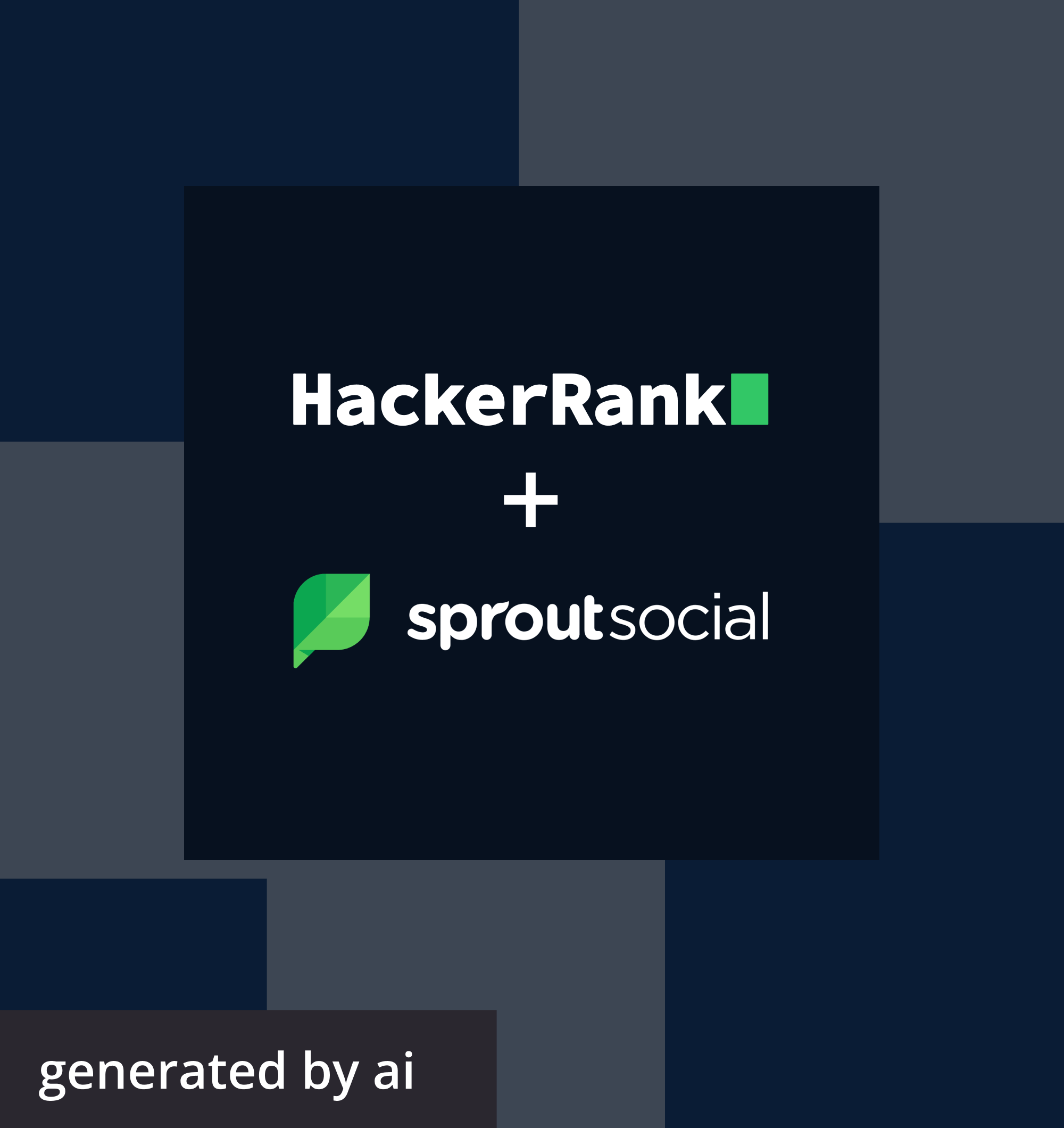
Remote work wasn’t the standard 10 months ago.
In fact, 80% of employers said they did not have a remote-work program before the onset of the pandemic, according to a MindEdge/Skye Learning study.
Remote work wasn’t the only area where companies had to adapt—remote hiring presented its own set of challenges. This forced companies, like MathWorks, to quickly pivot to keep up with their hiring objectives.
To understand how they adapted so quickly in such a short time while upholding their core values of growth and diversity, we spoke with Vipresh Gangwal, Manager of the Engineering Group at Mathworks, at our virtual HackerRank.main() event back in October.

Watch the full interview on demand or continue reading for key takeaways.
1. Always seek opportunities for growth
One of the core values at MathWorks is continuous improvement. They accomplish this by allowing employees to explore different opportunities within the company.
MathWorks put together a leadership development program providing recent graduates the opportunity to figure out where they fit within the company. Instead of assigning them to a specific role or team, they give them the flexibility to explore different facets of engineering.
“One such success story is actually myself,” says Vipresh. “I have a background in electrical engineering. My graduate studies were focused on perception and planning and robotics. I joined MathWorks because of my exposure to MATLAB and I thought I was going to be a software developer. But within a few weeks of joining, I was exposed to so many other roles and opportunities, I realized very early that I did not want to be a software developer. Today, I've been at MathWorks for more than eight years and have been a manager in the EDG (Engineering Development Group) program for more than half a decade.”
This philosophy also applies to how they approach hiring. “We are always hiring,” says Vipresh. “Part of my responsibility, along with helping engineers, is to help our department further our technical interviewing and hiring program and continuously evolve how we do things.”
2. Having the right technology makes it easier to pivot in times of crisis
Prior to the pandemic, remote work was not common at MathWorks. Vipresh and his team had to quickly shift and adapt pretty much overnight.
Since they were already in the throws of hiring with HackerRank, the transition was much smoother than anticipated.
“With HackerRank, it was easy,” says Vipresh. “Our phone interviews were the same, and HackerRank allowed us to take the onsite interviews and replicate the same level of assessment and engagement through the tool. The only difference was now, you’re not sitting in the same room.”

HackerRank’s virtual Whiteboard helps MathWorks conduct effective technical interviews from anywhere, using an interactive coding environment.
“I’m really excited about using the Whiteboard for virtual interviewing,” says Vipresh. “We have started to use it and I'm hearing good feedback from our technical interviewers on that.
3. Building a diverse candidate pool and skills rubric removes implicit biases and strengthens diversity
What does it take for someone to be successful on your team?
That’s the question Vipresh hopes to answer when building out his skills rubric for candidates. “When you anchor your interviews in fundamental technical skills, you remove variability between interviewers,” says Vipresh. “Once you align the HackerRank skills with the needs on your team, you eliminate implicit bias and really find the strongest candidates out there.”
Vipresh also recommends being proactive about incorporating diversity into your sourcing. He suggests getting involved in conferences that promote diversity in engineering along with attending virtual career fairs where you can attract diverse talent.
He says, “We hope these focused efforts of outreach create awareness so we can have more sourcing along those lines. Making sure that a diverse candidate pool exists is the first step, and then making sure that the interview process promotes diversity and treats candidates equally is the second. That will yield a good result in the end.”
4. Establish an expertise partnership to promote transparency and collaboration in hiring the right candidate
Hiring doesn’t happen in silos. Partnering with the right people to build a tech council equips recruiters to source the right candidates from the start.
Vipresh suggests, “Starting from sourcing all the way to your interviewing process and onboarding process, make sure you have that partnership so everybody has transparency and can work with each other.”
Vipresh also recommends taking the time upfront to have those meetings with the recruiting team so they not only understand the day-to-day tasks of the position but the day-to-day tasks of the hiring manager as well.
“When you talk to a recruiter or somebody in our recruiting team, they'll be able to describe the role as well as I can, because they have heard that from me, they know what I do on a daily basis,” says Vipresh. “If you can build that synergy and connect with recruiters the way you do with your colleagues, that's the way to go.”


